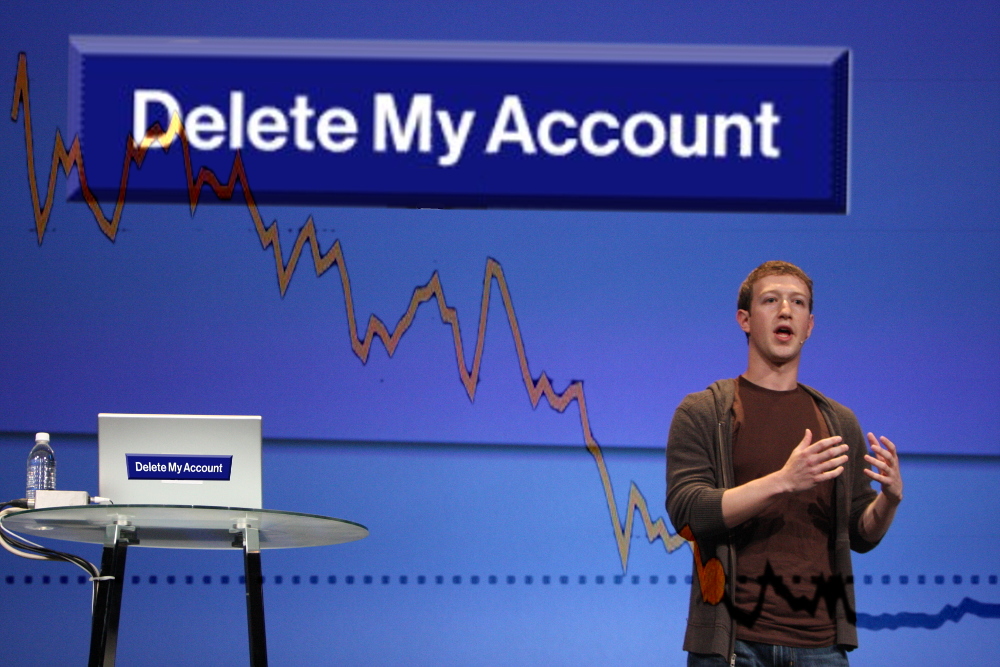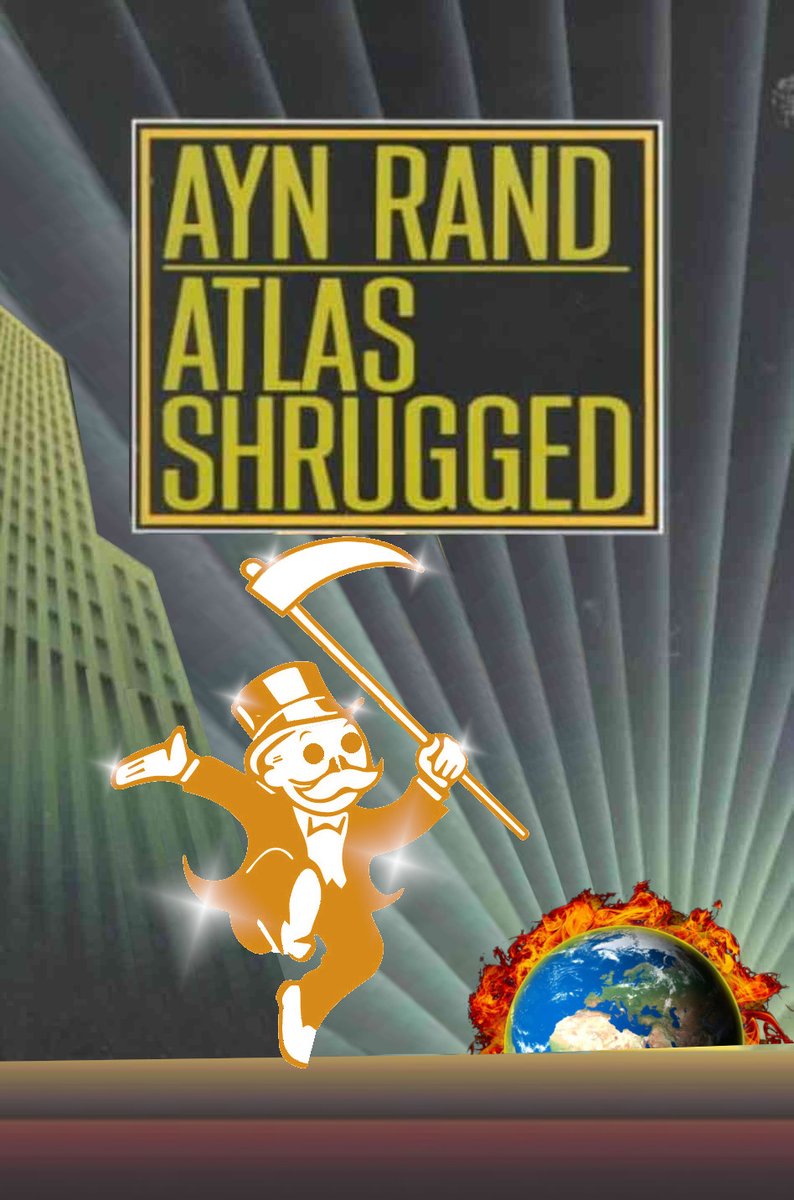
The pandemic showed us just how slow the global ruling class to move through the stages of grief, often getting stuck in denial ("this isn't happening") and bargaining ("can't I just reopen one teensy little giant Tesla factory, pretty please?").
pluralistic.net/2021/02/15/uly…
1/
pluralistic.net/2021/02/15/uly…
1/

The climate emergency is a sterling example of how "market forces" are incompatible with the continued existence of a human-habitable Earth.
2/
2/
Cons like "carbon offsets" are trivially corruptible and instantly become "markets for lemons," where the least effective climate measures produce the most profitable (and therefore most common) carbon credits, driving out all the good ones.
pluralistic.net/2020/12/12/fai…
3/
pluralistic.net/2020/12/12/fai…
3/
Market-based climate measures are where Gresham's Law ("bad money drives out good") meets #greenwashing. Every promising financial vehicle designed to harness markets to save our species becomes a scam.
4/
4/
Take "Environmental, Social, and Governance" (ESG) funds, pitched as a way to save for retirement without annihilating the planet you're planning to retire on.
5/
5/
These were once so promising that they panicked the finance sector, so much so that the world's carbon barons convinced Trump to propose a law making it illegal to direct your investment dollars into an ESG.
pluralistic.net/2020/08/05/beh…
6/
pluralistic.net/2020/08/05/beh…
6/
It didn't happen, because Trump is administratively incompetent and easily distracted. But carbon criminals are very competent and good at staying on-task. Rather than banning ESGs, they simply corrupted them, turning them into another form of greenwashing.
7/
7/
Writing in @USATODAY, Tariq Fancy calls ESGs "marketing hype, PR spin and disingenuous promises from the investment community" - and he should know, he founded and ran the ESG program at Blackrock, the worlds largest asset manager.
usatoday.com/story/opinion/…
8/
usatoday.com/story/opinion/…
8/
The ESGs you're sold are stuffed full of the world's worst polluters, from fast fashion companies to (not making this up) giant oil companies. OIL COMPANIES!
ESGs are blowing up, with sales nearly doubling over the past year.
9/
ESGs are blowing up, with sales nearly doubling over the past year.
9/
The @SEC_News's new Climate and ESG Task Force" will "proactively identify ESG-related misconduct." If history is any guide, it will fail. The most profitable green investment strategy will always be investing in polluters while pretending otherwise.
sec.gov/news/press-rel…
10/
sec.gov/news/press-rel…
10/
As Fancy writes, the solution to the climate emergency isn't asking the public or business to do capitalism differently. As with the pandemic, the answer is regulatory, coming from democratically accountable states, not the autocratic satrapies of the corporate world.
11/
11/
"In response to the pandemic, we’ve learned that only top-down government action, such as forcing the closure of high-risk venues and mandating masks indoors, makes a real difference. A 'free market' will not correct itself or fix the problem by its own accord."
12/
12/
The consumer movement was born at a time when competition made companies sensitive to things like boycotts. Consumerists realized that they could skip the tedious, unreliable legislative process (where corporations could always outspend them) and hit companies where it hurt.
13/
13/
That's not the case any more and it hasn't been for decades. While consumerists were focused on market pressure, corporations successfully lobbied for new antitrust standards that allowed them to eliminate competition through monopolistic mergers.
14/
14/
Once companies eliminated competition, boycotts stopped working. Every time I post about Amazon's abuses, someone tweets that we should just spend our money better, voting with our dollars. Which sounds great, until you realize that every tweet generates revenue for Amazon.
15/
15/
By definition, you can't shop your way out of a monopoly. If you don't believe me, hit your local grocery aisle, where two companies - Unilever and Procter and Gamble - are responsible for nearly every product on sale.
16/
16/
The "cruelty free" brand is made by the same company as the "maximum cruelty" brand. The "organic" brand is made by the same company as the "Oops! All Additives" brand. The "low packaging" brand is made by the same company as the "padded with spotted owl feathers" brand.
17/
17/
When Procter and Gamble buys up some beloved local organic babyfood brand or a scrappy keto meal startup, they trumpet the acquisition as "giving consumers more choice."
18/
18/
If Procter and Gamble does something you hate - marketing caged-veal smoothies or whatever - and you protest by buying the "plant-based" I-can't-believe-it's-not-veal smoothie, chances are, you're still buying a P&G product (and if not, it's probably Unilever's).
19/
19/
Corporate America was once very afraid of consumer movements, but it's been decades since boycotts or other spending choices were capable of effecting real change. It's time to stop thinking of ourselves as ambulatory wallets whose only way of acting is spending.
20/
20/
Structural change comes not from how market actors behave, but how markets are structured. The rules for markets matter more than the decisions we make under those rules. Our consumer power is irrelevant, but our citizen power is essential.
21/
21/
The path to a better future lays through state action, through leaning on your lawmaker (and agitating for electoral and campaign reforms), not through endless agonizing over your joke of a 401k or the things you put in your shopping basket.
21/
21/
If you'd like an unrolled version of this thread to read or share, here's a link to it on pluralistic.net, my surveillance-free, ad-free, tracker-free blog:
pluralistic.net/2021/03/24/gre…
22/
pluralistic.net/2021/03/24/gre…
22/
Image: Cristian Ibarra Santillan (modified)
flickr.com/photos/cristia…
CC BY:
creativecommons.org/licenses/by/2.…
eof/
flickr.com/photos/cristia…
CC BY:
creativecommons.org/licenses/by/2.…
eof/
• • •
Missing some Tweet in this thread? You can try to
force a refresh






